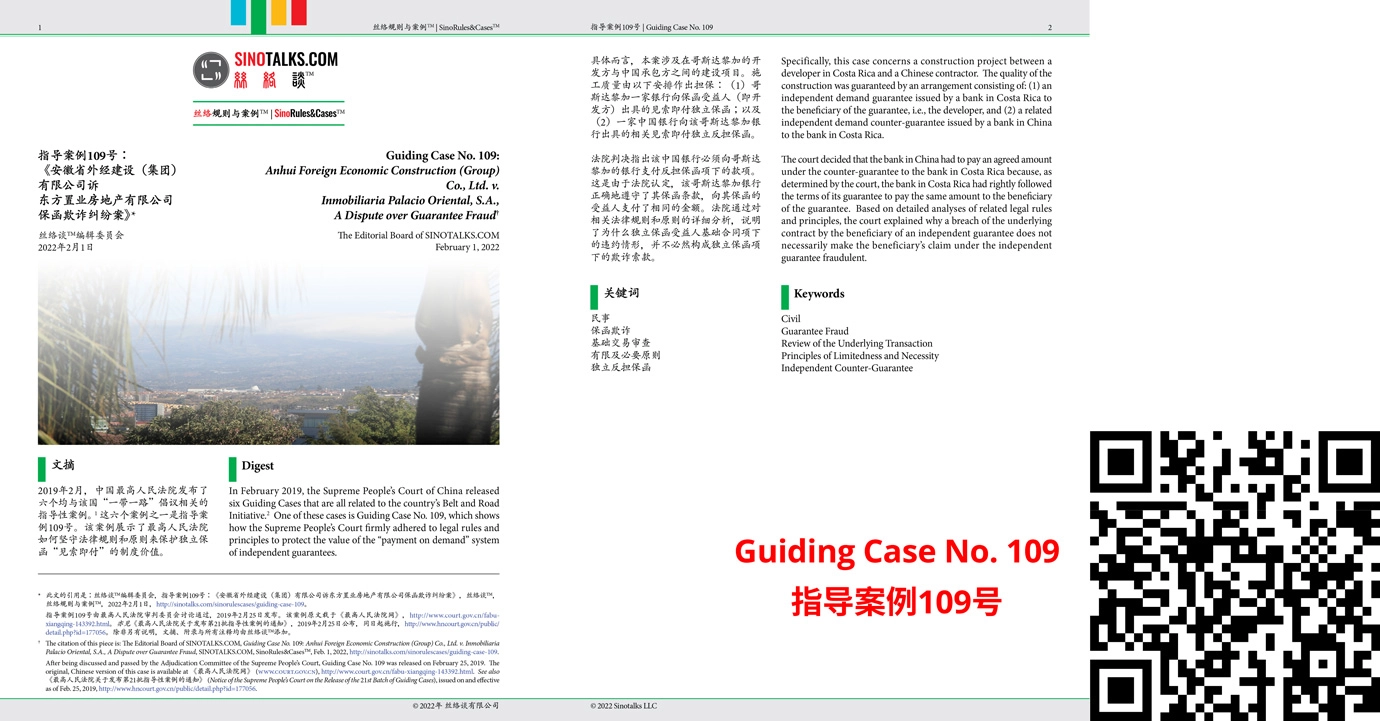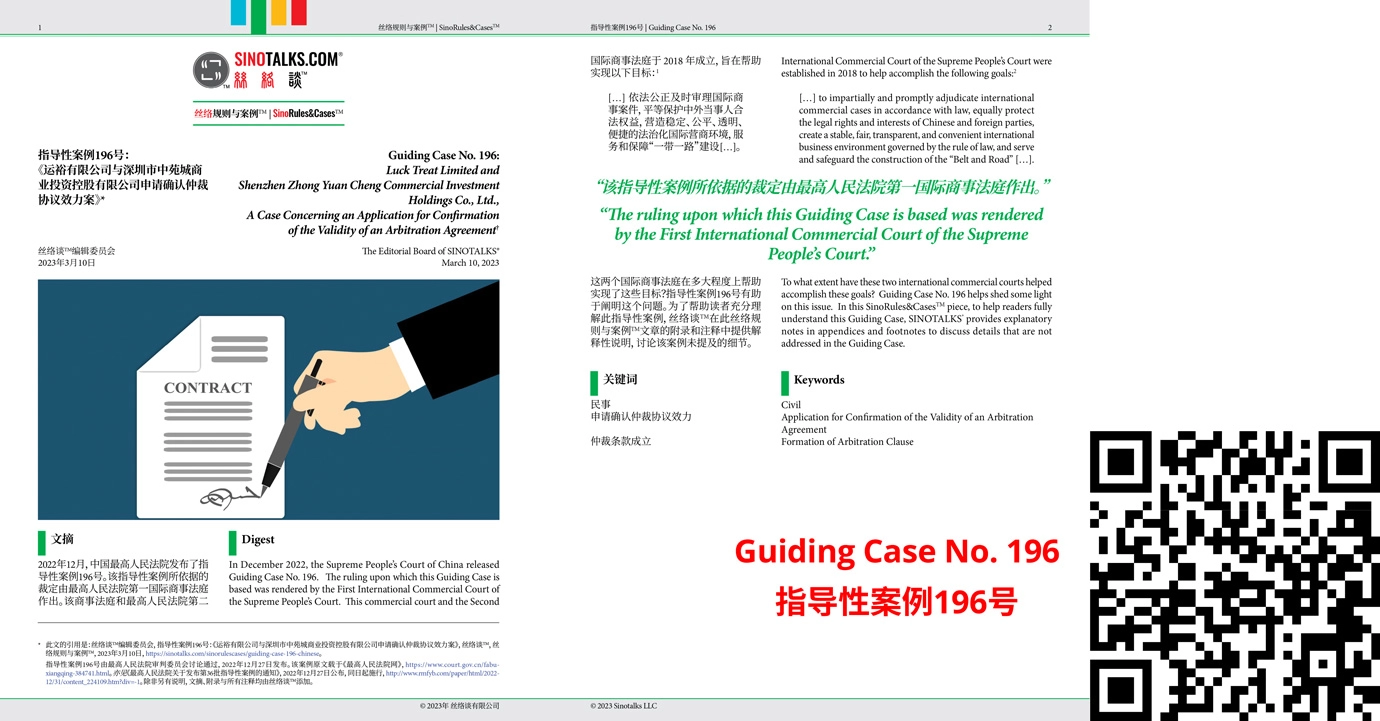The Global Legal Services Market:
Predictions & Implications for China†
Table of Contents
- China and the Four Fastest-Growing Regions
- Implications for Lawyers in China
- Implications for Rule-of-Law Developments in China
Estimated Reading Time
- 5 min

The global legal services market has been predicted by a leading market research institute to grow to USD 1,311.63 billion by 2031, with the fastest-growing regions being South America, the Middle East, Africa, and Eastern Europe (the “Four Fastest-Growing Regions”) and it is estimated that their compound annual growth rates will range from 11.1% to 8.9%. What are the implications of these predictions for lawyers and rule-of-law developments in China?
China and the Four Fastest-Growing Regions
“[…] the Four Fastest-Growing Regions have been significant recipients of China’s global investment and construction transactions.”
Increasing demand for transactional practice areas has been identified as an important driver of the above-mentioned growth of the global legal services market. It is also worth noting that the Four Fastest-Growing Regions have been significant recipients of China’s global investment and construction transactions.
According to the China Global Investment Tracker, from 2005 to mid-2022, the combined value of China’s global investment and construction transactions in the Middle East/Africa, Europe, West Asia, and South America reached USD 535.6 billion, USD 454.4 billion, USD 325.1 billion, and USD 189.2 billion, respectively. Specifically, Brazil and the Russian Federation are among the top 10 recipients of Chinese investment, with the former’s Chinese investment equaling USD 63.8 billion while that of the latter amounting to USD 34.8 billion.
In terms of construction transactions, China’s footprints in the Middle East, Africa, and Eastern Europe are even more apparent. Six out of the top ten countries for Chinese construction projects—Algeria, Ethiopia, Nigeria, the Russian Federation, Saudi Arabia, and the UAE—are all located in these regions and the aggregate value of their Chinese construction transactions is USD 169.6 billion.
China’s amicable relations with the Four Fastest-Growing Regions, as reflected in, for example, Argentina’s joining the Belt and Road Initiative, Beijing’s success in helping broker the Saudi-Iran normalization agreement, and China’s establishment of the African Human Resources Development Fund to help train African professionals of different disciplines, bode well for more China-related economic activities in these regions in the coming years.
Implications for Lawyers in China
Prospective China-related economic activities in South America, the Middle East, Africa, and Eastern Europe will likely present lawyers in China with many opportunities to offer legal services. Are these lawyers ready for such opportunities?
According to a report recently released by China’s Ministry of Justice, there are more than 651,600 practicing lawyers across the country. Of these lawyers, 71.66 percent received bachelor’s degrees and 21.22 percent received master’s or doctoral degrees. Only 8,727 lawyers in the entire country have studied and received degrees abroad. One must, therefore, wonder whether there is a sufficient number of Chinese lawyers who have gone through rigorous training to handle complicated cross-border transactions.
To fill the gap, law firms outside mainland China can be helpful, as they usually have more experienced lawyers to cover complicated cross-border transactions. As of the end of 2022, slightly more than 200 law firms from 22 countries/regions have established 282 representative offices in China. Of these offices, 205 are associated with foreign law firms, 64 with Hong Kong law firms, and 13 with Taiwan law firms.
In the long run, however, mainland Chinese lawyers need to undergo rigorous training to firmly grasp opportunities arising from China-related economic activities in South America, the Middle East, Africa, and Eastern Europe.
Implications for Rule-of-Law Developments in China
“An effective way to jump-start the training for mainland Chinese lawyers is to provide them with training in Guiding Cases that have cross-border implications.”
An effective way to jump-start the training for mainland Chinese lawyers is to provide them with training in Guiding Cases that have cross-border implications. Contrary to conventional wisdom, guiding principles established in Guiding Cases, China’s de facto binding precedents, can be useful not just to litigation lawyers, but also to lawyers who primarily focus on structuring complicated deals.
Two Guiding Cases are illustrative. Guiding Case No. 109 (Anhui Foreign Economic Construction (Group) Co., Ltd. v. Inmobiliaria Palacio Oriental, S.A., A Dispute over Guarantee Fraud) concerns a cross-border construction project between a developer in Costa Rica and a Chinese contractor. The quality of the construction was guaranteed by independent demand guarantees issued in accordance with the Uniform Rules for Demand Guarantees of the International Chamber of Commerce. The Chinese judiciary upheld these rules to protect the value of independent guarantees, without which cross-border construction would become challenging.
Guiding Case No. 196 (Luck Treat Limited and Shenzhen Zhong Yuan Cheng Commercial Investment Holdings Co., Ltd., A Case Concerning an Application for Confirmation of the Validity of an Arbitration Agreement) concerns a contract with an arbitration clause. The court adopted a liberal approach to determine that the failure to form the contract did not affect the formation of the arbitration clause, the content of which had been agreed upon by parties involved. Foreign parties in cross-border transactions will likely appreciate the Chinese judiciary’s strong support for arbitration, which is generally perceived as an efficient and effective means to resolve legal disputes arising from complicated cross-border matters.
In light of the value of Guiding Case Nos. 109 and 196, the Supreme People’s Court should also consider issuing more Guiding Cases of these types to facilitate cross-border transactions. This, together with related training offered to lawyers, will help provide a rule-of-law environment welcomed by foreign parties and also endow mainland Chinese lawyers with a growing competency that they can leverage to develop their legal practice.
† The citation of this article is: Dr. Mei Gechlik, The Global Legal Services Market: Predictions & Implications for China, SINOTALKS.COM®, In Brief No. 33, June 28, 2023, https://sinotalks.com/inbrief/global-legal-services-market.
The original, English version of this article was edited by Nathan Harpainter. The information and views set out in this article are the responsibility of the author and do not necessarily reflect the work or views of SINOTALKS®.








